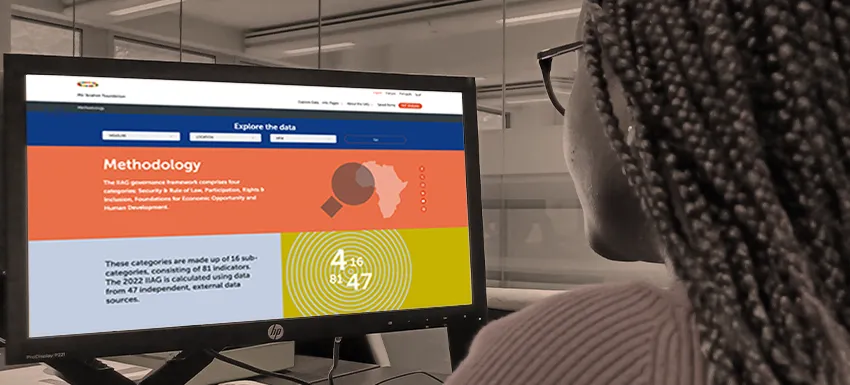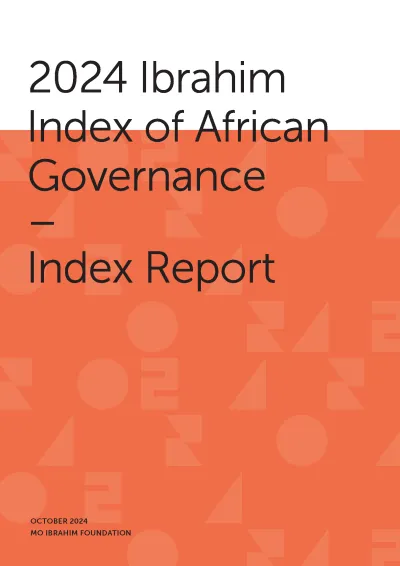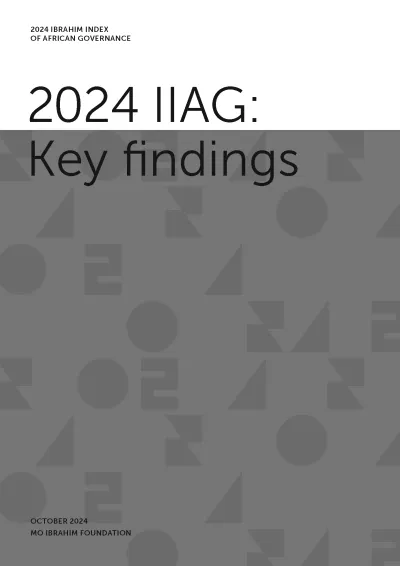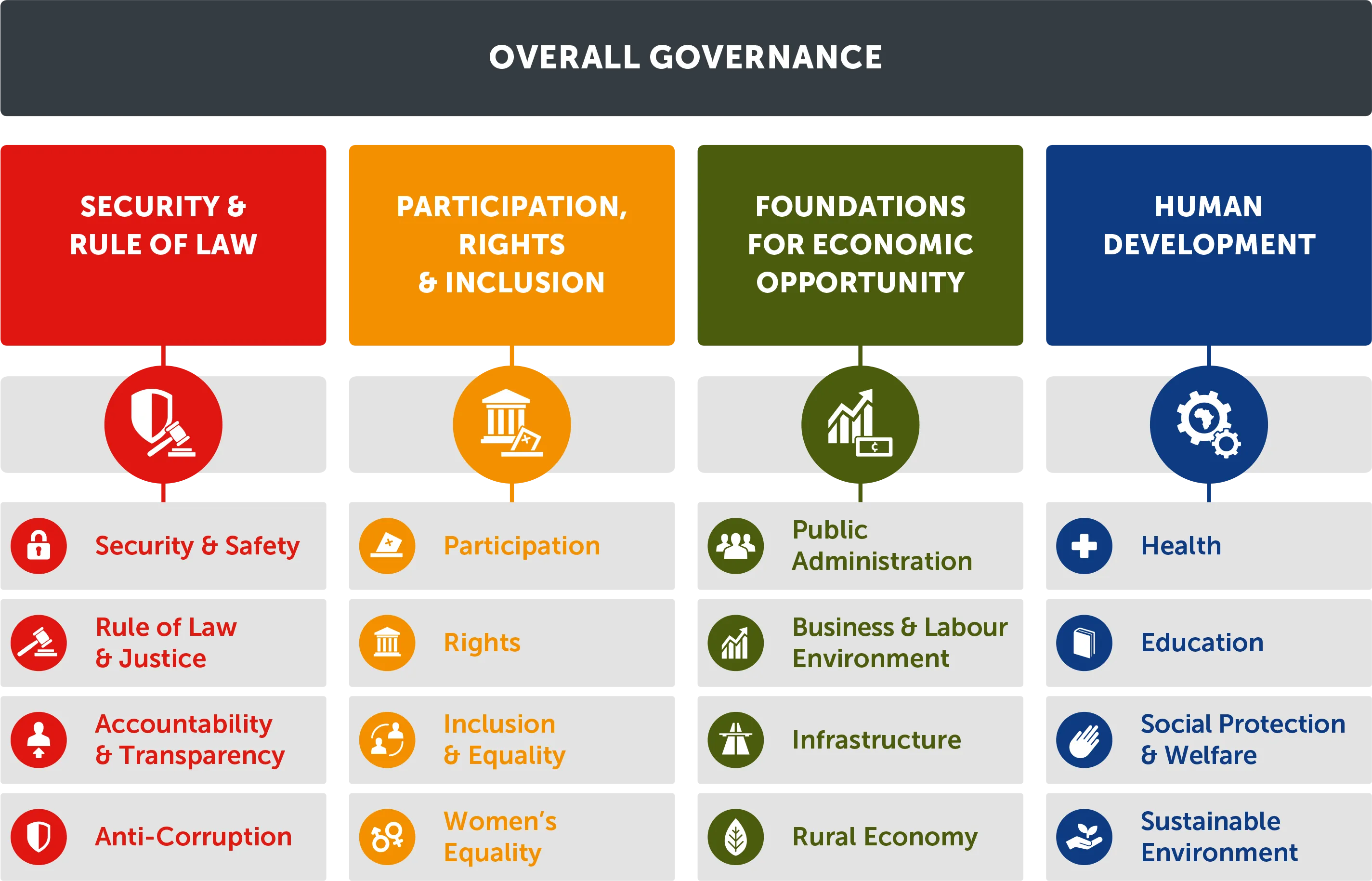Ibrahim Index of African Governance (IIAG)
The IIAG is a tool that measures and monitors governance performance in African countries.


About the IIAG
The Mo Ibrahim Foundation defines governance as the provision of political, social, economic and environmental goods that a citizen has the right to expect from their state, and that a state has the responsibility to deliver to its citizens.
Published since 2007, the IIAG assesses governance performance in 54 African countries over the latest available 10-year period. It provides a framework and dashboard for any interested audience to assess the delivery of public goods and services and public policy outcomes in African countries.
The IIAG constitutes the most comprehensive dataset measuring African governance, providing specific scores and trends at African continental, regional, and national level, on a whole spectrum of thematic governance dimensions, from security to justice to rights and economic opportunity to health.
Data Portal

Our online data portal provides full information about the Index, including its methodology and all relevant documents including reports and datasets to download. The portal can be used to freely explore nearly 500 measures of governance in four languages.

The IIAG is the most accurate picture of what is going on in Africa, based on data, not personal views or political bias.Mo Ibrahim
2024 IIAG - key documents



A revised framework
Since 2007, both the data and governance landscapes have evolved immensely. To take into account those changes, a thorough review of the IIAG was conducted between 2018 and 2020, providing a completely re-worked framework for the next iterations of the IIAG at both conceptual and methodological levels.
This comprehensive 2020 revision updated the theoretical framework and data sources for the IIAG, based on a review of the most recent literature and data sources, including consultations with experts and practitioners such as the IIAG Expert Panel and the Foundation's Council.
The increased availability of data also strengthened the robustness of IIAG indicators: most are now based on more than one source or variable as opposed to less than half of the indicators in the 2018 IIAG, therefore mitigating the ‘one source or variable bias’. Composite scores constitute a key added value of the new IIAG dataset.

Highlighting Africa’s citizens’ voices
As citizens are the recipients of public leadership and governance, the assessment of governance performance needs to be rooted on results for citizens and cannot rely on official and expert assessment data alone.
Since the IIAG's inception, MIF has been working with and supporting Afrobarometer, the leading pan-African research institution conducting public attitude surveys on the continent. The IIAG dataset includes Afrobarometer-sourced indicators in each sub-category of the Index. These public perception indicators allow users to contextualise the results in the reality on the ground as perceived by citizens.


